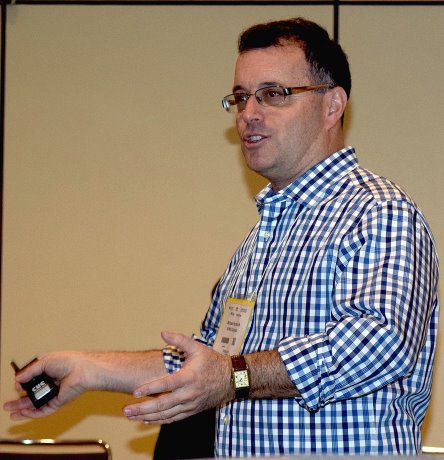Project pricing in the global construction marketplace is a tremendously important aspect of doing business, but many companies underestimate its impact on their bottom line, said an international pricing expert at a seminar he hosted at the recent Buildings Show in Toronto.
Michael Hurwich, the Toronto-based CEO and president of Strategic Pricing Marketing Group (SPMG), was recruited to speak on Market Intelligence and Bidding for Global Construction Projects and took the opportunity to advocate for greater awareness of how clients perceive value, urging a more sophisticated approach to pricing.
"Pricing is probably one of the biggest leverage points in generating profit whether you are in construction, real estate or any industry for that matter," Hurwich said. "Pricing touches everybody. Firms can always do a better job around pricing or delivering value."
SPMG is a global company specializing in price consulting across multiple industries with offices in five continents. Hurwich says a core doctrine of SPMG is the importance of value pricing, which leads him to another discussion, on the merits of an "inside-out" versus an "outside-in" approach.
The former is more traditional and refers to determining what the firm’s costs are and then figuring out a profitable price — also called cost-plus.
The latter requires a focus on the needs of one’s clients and cultivating strong relationships via a thorough understanding of the client’s culture. Hurwich espouses the outside-in approach — in keeping with his relentless belief in understanding one’s clients.
Firms must determine where their clients stand on a matrix with four different traits: Price Sensitive, Value Buyer, Convenience Buyer or Loyal Buyer. The last three of those qualities, Hurwich points out, generally result in price inelasticity. He cited a study that suggests only 35 per cent of the marketplace is price sensitive, which means once firms determine what drives their clients, they can focus on non-price-sensitive qualities such as value and loyalty. If you give someone who is not price sensitive a good deal, he said, "You have left money on the table."
Regardless, to some extent, said Hurwich, "Every customer is price sensitive, but some are more price sensitive than others."
Construction firms doing business domestically or globally must do their best to learn what features of their services are valued most highly by the potential client — he gave as examples speed, reliability, accuracy and quality.
Bidding for global construction projects presents a unique set of challenges, Hurwich told his seminar audience. More than domestic jobs, each deal is different in scope and types of deliverables, he said.
The deal size can range from small to very large; contract terms change from deal to deal; the risks vary, and there can be significant unknown risks; and the delivery cost can be very hard to predict.
Regardless of the location, said Hurwich, it is important to analyze why the potential client might want you. A firm must convey the value that their company brings to the venture.
In an interview, Hurwich offered his take on how important it is for Canadian construction companies to understand the culture of a host nation, beyond the individual client.
"The cultural nuances that occur across borders are so important to get right," he said. "Prior to having any engagement with a company, the focus on cultural differences promotes the idea that price may not be the underlying driver of customer decision selection.
"If price is not the underlying driver of customer decision selection, one therefore has to identify those key attributes or criteria that are in fact important to foreign companies or individuals outside our own borders."
A common problem that a lot of firms have, Hurwich said, is that they do not do their homework.
"They think that products and services or their brand sells itself, or attempt to penetrate an organization or country using price as a lever rather than trying to understand those other nuances that make up one’s value proposition," he said.
Often international clients are more interested in the attributes that make up value than they are in price, Hurwich said.
"Those attributes can be understanding their cultural differences, or delivering on time, or delivering expertise that does not reside in that country but resides abroad. Or having experiences whereby a company has undertaken similar projects, learned from their mistakes and can absorb that risk and therefore those key criteria are attractive to other countries or companies abroad.
"Therefore one can dictate the price they desire for that particular project."
When dealing with a foreign government as the owner of a project, Hurwich said cost is of course a factor but in this case the client really needs reliability.
"Price is only an underlying factor when the job is not done on time, with sufficient quality or it takes longer than is promised," he said. "The governments have an expectation that politically they won’t be compromised and that the particular project that is being undertaken will not interfere with the ongoing business of government."
The Buildings Show was held at the Metro Toronto Convention Centre Dec. 2 to 4. Hurwich’s seminar took place Dec. 3.










Recent Comments
comments for this post are closed